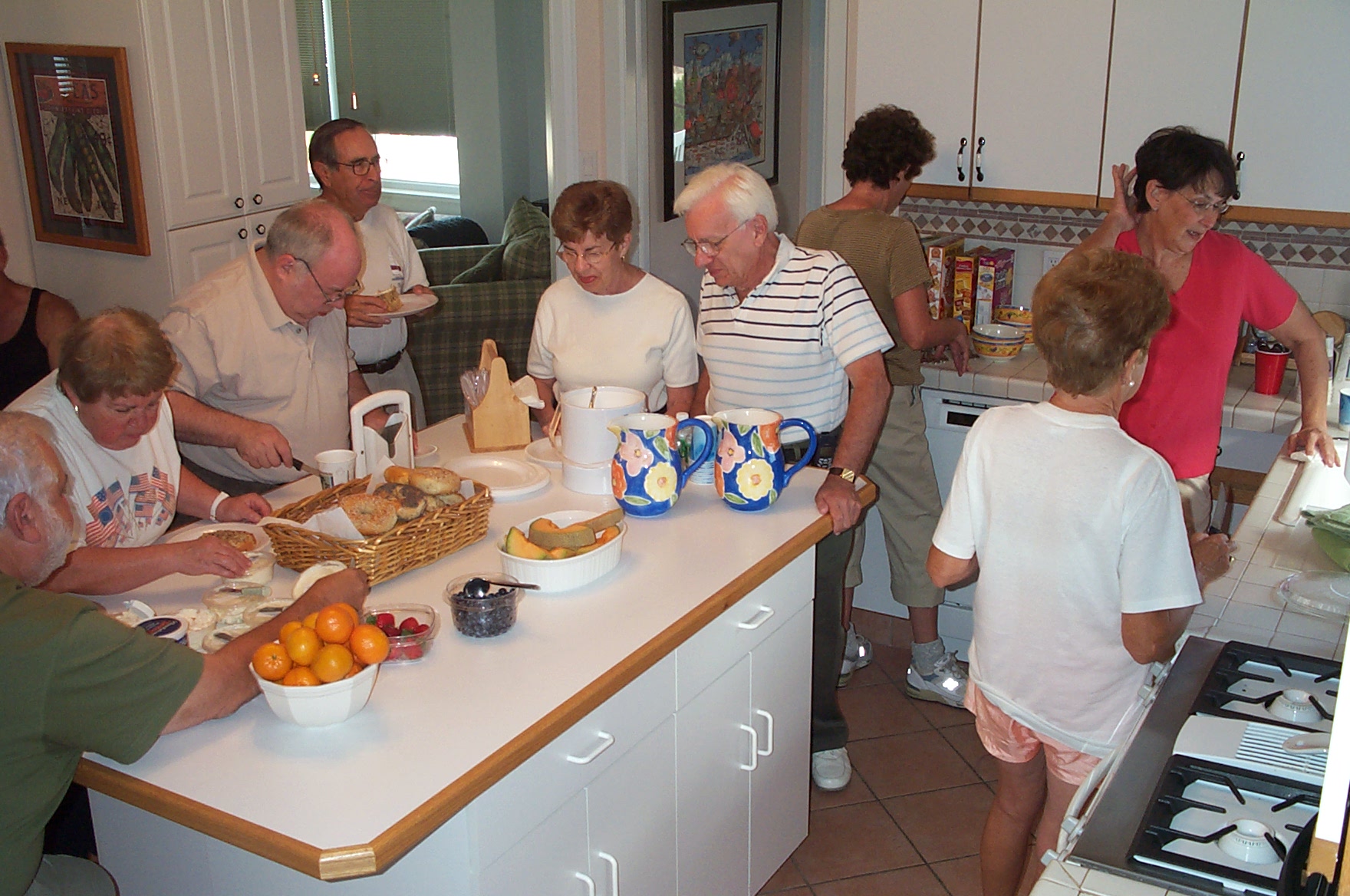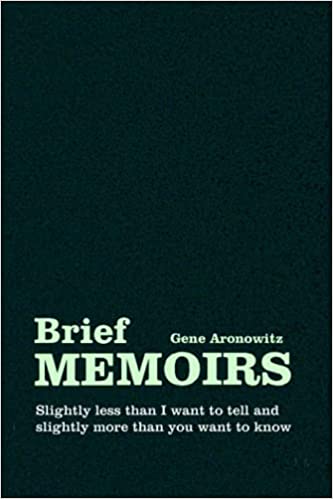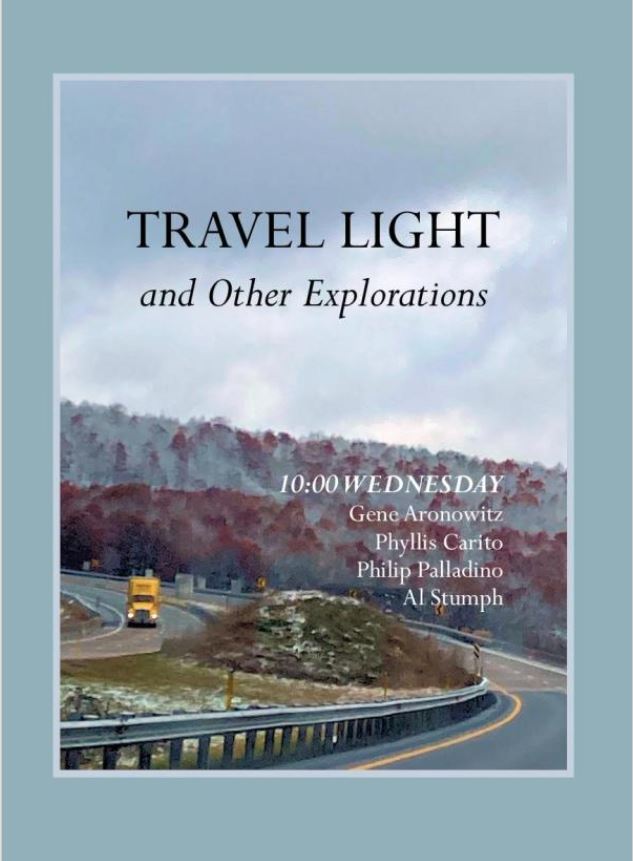Gatherings of Cousins
By Gene Aronowitz
My wife Linda and I boarded a crowded Friday afternoon Greyhound bus in the summer of 1997, our car having been totaled in a highway collision. Living in New York City, we wondered whether we might be better off without a car. The Atlantic City casinos reimbursed part of the bus ride cost, but they required that we go inside the casino to get our money, assuming we would lose that amount and probably more. But we don’t gamble, so we just took their money and waited for my cousin, Jerry, to pick us up and drive us three and a half miles to his house on South Oxford Avenue in Ventnor. He had invited me, our mutual first cousins, and all our spouses to gather with him and his wife, Cathy, for a weekend in their eleven-bedroom house, less than a block from the beach.
For the first of our evening meals, we ordered 20 versions of what family members, coming from different parts of the country, variously called subs, hoagies, heroes, wedges, or grinders from the 50-year-old local institution called Sack-O’-Subs. Once we returned with these delectables, we gathered around the dining room table and swapped tales of family life. When Linda and I finally went to our bedroom, we were delighted with the fragrance of saltwater floating through our open window. Once in bed, we could hear the faint sound of the waves kissing the shoreline as we drifted off to sleep.
A few of us got up early the next morning for a stroll on the boardwalk. Later in the day, almost everyone went down to the beach. But not me! As a child, shoveling sand through my spread-out fingers on the Atlantic City beach, an embedded piece of glass sliced the back of my hand, and the scar continues to remind me of that calamity. I like to look at the beach but not sit on it.
Early that evening, our entire group had dinner at a noisy seafood restaurant where conversations with anyone were difficult because everyone in the restaurant had to holler to be heard.
Later, everyone returned to the house and gathered in the living room to talk about family history. When it was my turn, I recounted a story my mother told Linda and me about a conflict back in 1927, when she and my father were thinking about getting married. They visited my mother’s eldest sister, Reba, and her husband, Dave. The argument started when Aunt Reba said, “You’ll have to get Papa’s permission if you want to get married.” My father countered, “The hell we do,” to which Uncle Dave shouted, “You can’t talk to my wife that way,” to which my father exclaimed, “I’ll talk to her any way I want,” and menacingly, picked up a chair. Those were the last words they ever said to each other even though they were frequently together and even loaned each other money through third parties. The room was filled with a lengthy, uncomfortable hush when I finished. Apparently, everyone expected humorous anecdotes or stories describing a close and convivial family. Listening to other stories that night, they were not disappointed. If you are wondering, my parents decided to elope without getting anybody’s permission.
Early Sunday morning, Jerry and I drove to Casel’s Marketplace in Margate to get bagels, smoked fish, tomatoes, onions, and cream-cheese spreads, a somewhat arduous task because Jews can be pretty particular about such things. Jerry and I tried to accommodate everyone by buying poppy seed, onion, garlic, sesame, and everything bagels. For the schmeer, we purchased four cream cheese spreads: one with chives, one with assorted vegetables; one with a lox flavor; and a small container of plain for the purists. As for the fish, we got lox and smoked sable. Breakfast was served around the smallish kitchen island, with each person vacating his or her seat when finished to make room for those who slept late or had not yet returned from the boardwalk.
When it was time to leave, Linda and I got a ride around Atlantic City on our way to the Greyhound bus station. Growing up, I loved Atlantic City and remember attending my very first concert when Johnnie Ray played Steel Pier and then walking to the back of the pier to watch a horse climb up a ramp to a high perch and dive 40 feet into a small pool of water. Saltwater taffy was always a treat, and I laughed at the Planters Peanut silent barker meandering around the boardwalk, wholly enclosed in a hard-shell peanut replica. I loved the old clapboard-sided houses near the beach, with sand-removing showers underneath the steps, which you would climb to get to the elevated front porches, on which everyone would assemble. Seeing that the casinos had replaced all those wonderful houses was distressing. The city had become a movie set with glitzy buildings forming a façade facing the beach, concealing the rundown houses and pawn shops just beyond. As we arrived at the bus station, I grieved for the Atlantic City of my youth.
Linda and I traveled down to Ventnor twice more on Greyhound casino buses, but then we bought a car and drove. That trip on the Garden State Parkway was supposed to take about two hours since we lived in Sunset Park, Brooklyn, just minutes from the Verrazano Bridge, but it never took less than four and sometimes more.
Everyone who could, returned annually to that house. The weekend generally followed the same routine, including the Sack-O-Subs subs and the bagel breakfasts. But everyone brought other vittles with them to share. Starting in the second year, Linda and I brought a five-pound hard salami from Katz’s delicatessen on the Lower East Side of Manhattan. I think it measured about 18 inches, and the first time she saw it, my cousin Charlotte joked that she would like to meet its little brother. The family initially greeted the salami with groans and grumbles about how unhealthy it was, but nothing was left of it by the end of the first morning.
By 2000, everyone welcomed the salamis with glee, having all seen or heard about the fake orgasm scene in “When Harry Met Sally,” filmed at Katz’s, with rows of hard salamis hanging just beyond Meg Ryan’s open mouth.
There was a full house that year, and early on the second day, Linda and I were having a thoughtful conversation with Jerry on his back porch. He was generally reluctant to discuss personal matters but not that day . Perhaps to juice up the conversation, he asked if Linda and I felt like getting high. “Sure,” I said. He left for a moment, returned with a joint, which we shared, and then retreated to his in-ground hot tub. However, we didn’t get into Jerry’s story because almost immediately, everyone else joined our little gathering. The discussion morphed into a prolonged exploration of how wonderful it was for all of us to be together again. Still a little stoned, my feeling of connection with the whole family soared.
After fourteen years of gathering on South Oxford Avenue, Jerry and Cathy moved to a smaller house a couple of blocks inland, where a diminishing contingent of cousins continued to collect. I don’t know exactly when it happened, but one year, and every year after that, the first evening of our get-together began with what I called an organ recital, not the melodious kind, but rather the telling of tales about our physical infirmities. We spoke about having trouble pumping blood, colon explorations producing pictures of polyps, stomachs and backs acting up, everyone’s hearing and eyesight diminishing, knees and shoulders eroding, and some of us surviving bouts of cancer. We were seemingly eager to describe what had come about pathologically since the previous gathering. But, as the years went on, some cousins developed more debilitating disorders, including Parkinson’s and Alzheimer’s diseases, and fewer were able to attend.
Jerry died in 2015. At his funeral, I approached his wife. Cathy stood up to greet me and said, “You’re not going to stop coming, are you?” We did not stop, although we began to gather at bed and breakfast facilities. Of the original group of ten first cousins who came together in 1997, only five of us are still alive. The annual three-day pilgrimages to Ventnor continued for 22 of the following 23 years until Covid 19 made gathering undesirable. But almost every phone conversation I have with those still able to travel contains the words, “Let’s hope we can get together next summer down at The Shore.”
A version of this memoir was initially published in Travel Light and Other Explorations



